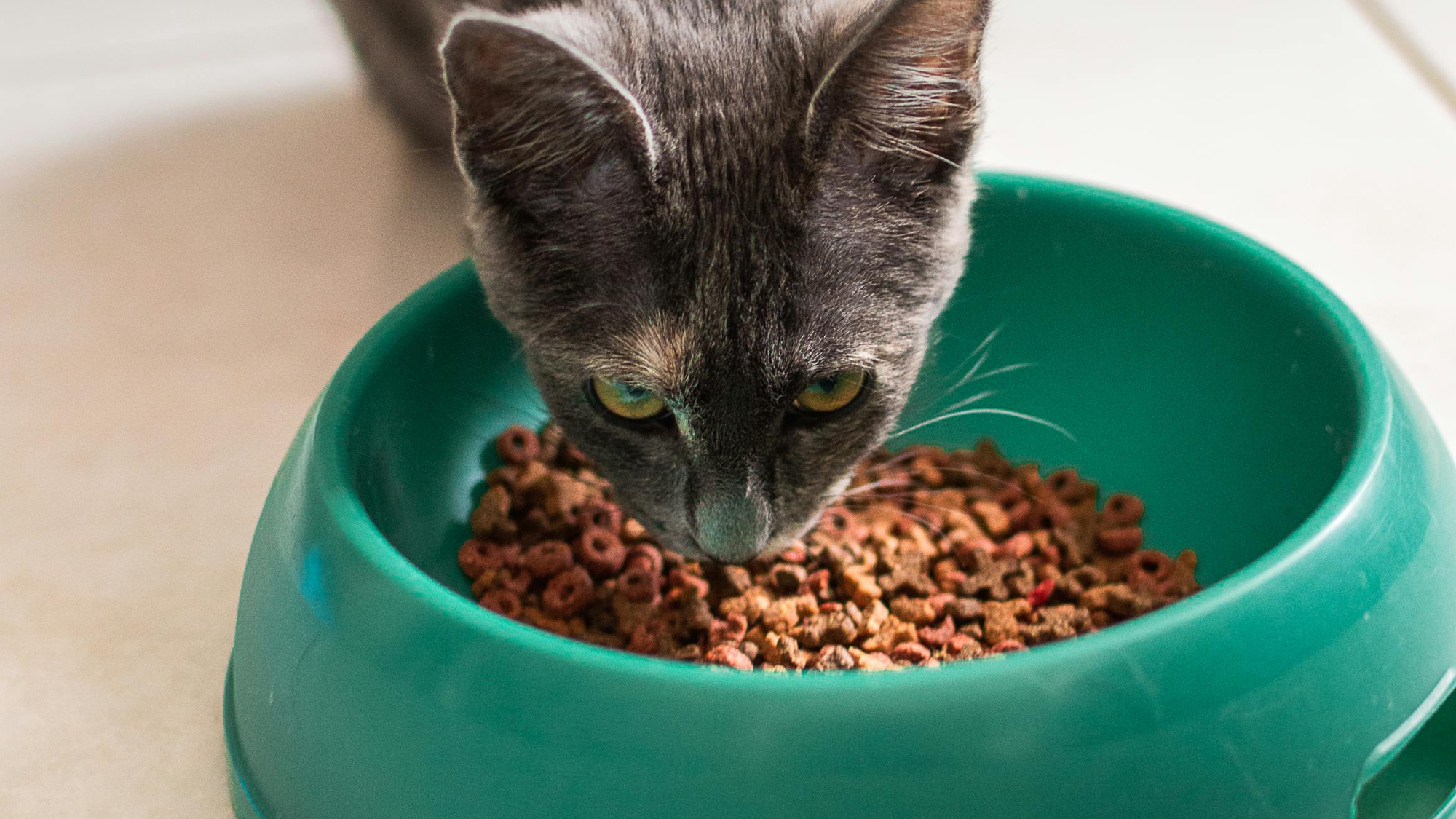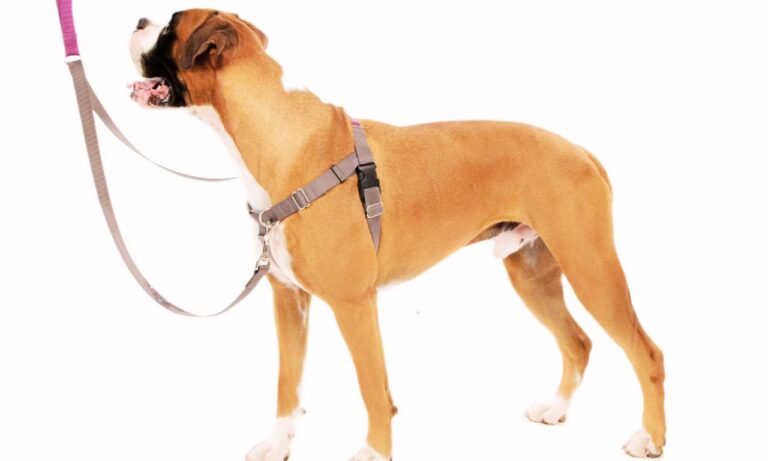| Summary: Vets recommend dry food for cats due to its balanced nutrition, convenience, dental benefits, and cost-effectiveness. High-quality kibble meets feline dietary needs, is easy to store, and helps reduce plaque buildup. However, it lacks moisture, so owners should ensure proper hydration. Choosing premium dry food improves overall health and longevity. |
Feeding cats is a topic of much debate among pet owners, with opinions divided between dry food (kibble) and wet food (canned or fresh). While both options have their pros and cons, many veterinarians often recommend dry food as a staple diet for cats. So, why do vets recommend dry food for cats?
This recommendation is based on various factors, including nutritional balance, convenience, dental benefits, and cost-effectiveness. But is dry food really the best choice for your feline friend?
I’ll explore the reasons behind veterinarians’ preference for dry food and whether it truly meets a cat’s dietary needs. Ensure your Newfoundland’s comfort and security with expert tips on Proper Collar Fit for a Newfoundland: Safety Guide.
Blog Highlights
ToggleQuick Fix FAQ Guide
In this Quick Fix FAQ Guide, we answer common questions like “Why Do Vets Recommend Dry Food for Cats?” Understanding the benefits of dry food can help you make the best dietary choice for your feline friend.
Why Do Vets Recommend Dry Food for Cats?
Here’s why do vets recommend dry food for cats: One of the primary reasons vets recommend dry cat food is its carefully formulated nutritional balance. High-quality dry cat foods are designed to meet a cat’s specific dietary needs, ensuring they receive essential proteins, fats, carbohydrates, vitamins, and minerals.
Cats are obligate carnivores, meaning their diet must be rich in animal-based proteins to support their health. Dry cat food is typically formulated with a combination of meat, fish, or poultry proteins, which provide the necessary amino acids, such as taurine and arginine, that are crucial for a cat’s heart, eyes, and overall well-being. Many premium dry food brands also contain added vitamins, probiotics, and antioxidants to support a cat’s immune system, digestion, and skin health.

Additionally, commercial dry cat foods are developed according to the guidelines set by the Association of American Feed Control Officials (AAFCO), ensuring that they meet the minimum nutritional requirements for feline health. While wet food also offers nutritional benefits, dry food has the advantage of being highly concentrated, meaning cats can obtain their daily required nutrients in smaller servings.
Convenience for Cat Owners
One of the biggest reasons veterinarians recommend dry food is its convenience for cat owners. Unlike wet food, which needs to be refrigerated after opening and consumed within a short time frame, dry kibble can be stored at room temperature for weeks or even months without spoiling.
This makes dry food particularly useful for pet owners with busy schedules or those who prefer to free-feed their cats. Many cats enjoy grazing throughout the day rather than eating meals at set times. Dry food allows for this feeding style without concerns about spoilage, unlike wet food, which can attract bacteria or pests if left out for too long.

Additionally, dry food is easy to measure, store, and transport, making it a practical choice for travel or multi-cat households. Owners don’t have to worry about refrigerating leftovers, washing food bowls multiple times a day, or dealing with the strong odors that canned cat food sometimes has.
Dental Health Benefits
Another major reason vets recommend dry food is its potential benefits for dental health. The texture of dry kibble helps to reduce plaque and tartar buildup on a cat’s teeth. When a cat chews on dry kibble, the abrasive action of the crunchy pieces can help scrape off soft plaque before it hardens into tartar, which can lead to gum disease and bad breath.

Dental health is a major concern for many cats, as periodontal disease is one of the most common health issues in felines. If plaque and tartar are not managed, they can cause inflammation, gum infections, and even tooth loss. Some dry cat foods are specifically formulated as dental diets, with larger kibble sizes or added ingredients like sodium hexametaphosphate, which helps prevent tartar formation.
However, while dry food may help with dental health, it is not a substitute for regular dental care. Vets still recommend brushing a cat’s teeth regularly and providing dental treats or toys designed to support oral hygiene.
Cost-Effectiveness
For pet owners on a budget, dry food is a more affordable option than wet food. High-quality dry cat food generally costs less per serving than canned food while still providing complete nutrition. Since dry food is calorie-dense and requires smaller portions per meal, a single bag can last much longer than a pack of wet food, making it more economical for multi-cat households.
Additionally, dry food reduces the waste factor. With wet food, there’s a higher chance of leftovers going uneaten, leading to food waste and additional expenses. Dry food allows pet owners to portion meals precisely, ensuring that cats eat the right amount without unnecessary wastage.
That said, while dry food is cost-effective, it’s important for pet owners to choose high-quality brands rather than opting for the cheapest options, as lower-quality dry foods may contain fillers, artificial additives, or low-quality protein sources that could be harmful in the long run.
Long Shelf Life and Reduced Spoilage
Another key advantage of dry food is its long shelf life. Unlike wet food, which must be refrigerated and used within a few days of opening, dry food remains fresh for much longer when stored properly. Most dry kibble has a shelf life of several months, making it a more practical choice for bulk purchases.
This feature is especially beneficial for cat owners who prefer to buy pet food in larger quantities to save money or for those who may not have easy access to pet stores. Additionally, since dry food doesn’t require refrigeration, it is an ideal option for emergency preparedness, ensuring that cats have a steady food supply during unexpected situations such as natural disasters or travel disruptions.
To maintain freshness and prevent contamination, dry cat food should be stored in an airtight container in a cool, dry place. Proper storage prevents moisture exposure, which can lead to mold growth or loss of nutritional value. Discover the perfect collar size for an Anatolian Shepherd Dog to ensure comfort and security for your furry friend.
Weight Management and Portion Control
Vets also recommend dry food for its role in weight management and portion control. Some dry cat foods are specifically formulated for weight loss or maintenance, offering higher protein and fiber content with reduced fat levels. These formulations help cats feel fuller for longer, reducing the likelihood of overeating.
Since dry food is easier to measure and portion, pet owners can control calorie intake more effectively compared to wet food, which may be harder to gauge in terms of serving size. Many commercial dry foods also include feeding guidelines on their packaging, making it easier for owners to determine the appropriate amount for their cat’s age, weight, and activity level.

However, free-feeding dry food can sometimes lead to obesity, especially in indoor cats with low activity levels. Vets recommend using measured portions and feeding schedules rather than leaving food out all day to prevent excessive weight gain.
Potential Downsides of Dry Food
While dry food has many benefits, it’s important to acknowledge some potential downsides. One of the biggest concerns is low moisture content. Cats naturally have a low thirst drive, meaning they do not always drink enough water to stay properly hydrated. Since dry food contains only about 10% moisture, cats who eat only kibble may be at a higher risk of dehydration and urinary tract issues.

To prevent dehydration, vets recommend that owners ensure their cats have constant access to fresh water. Some owners opt to use water fountains, which encourage cats to drink more by providing a flowing water source. Another option is incorporating a mix of wet and dry food in the diet to provide additional moisture.
Another concern is the quality of ingredients in some dry food brands. Lower-end kibbles may contain high amounts of carbohydrates, fillers, or artificial preservatives, which are not ideal for a cat’s carnivorous diet. Owners should always choose high-quality, grain-free, or limited-ingredient dry foods with real meat as the first ingredient. Learn more about the unique double-layered coat of an Anatolian Shepherd and how to care for it effectively.
Wrapping Up
Veterinarians recommend dry food for cats because of its nutritional value, convenience, affordability, and dental health benefits. “Why Do Vets Recommend Dry Food for Cats?” High-quality dry cat food provides a well-balanced diet, is easy to store and portion, and helps manage a cat’s weight and dental hygiene. Additionally, it is cost-effective and has a longer shelf life than wet food, making it a practical choice for many pet owners.
However, it’s important to recognize the potential drawbacks, such as low moisture content and ingredient quality in some brands. To ensure optimal health, pet owners should choose premium dry food, provide plenty of fresh water, and consider supplementing with wet food for extra hydration. Hope so, now you know, why do vets recommend dry food for cats.
Ultimately, the best diet for a cat depends on individual health needs, and consulting a vet is always the best approach to ensure proper nutrition and well-being. For insights on whether Pomeranians should wear a collar, including considerations for safety and alternatives, check out this informative article.





